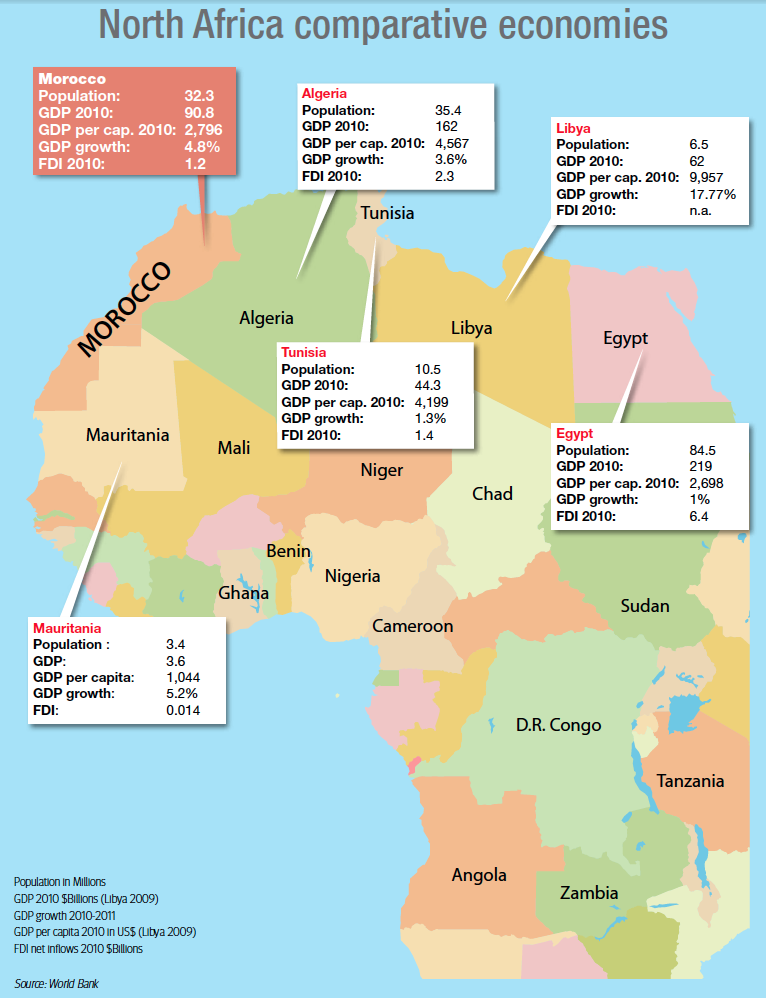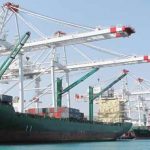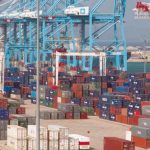Enlightened monarchy
 The Kingdom of Morocco is the westernmost country in North Africa. With a population of about 32 million inhabitants and an area of 710,850 square kilometers, Morocco is part of the Maghreb region, which also includes Tunisia, Algeria, Mauritania, and Libya, with which it shares cultural, historical and linguistic ties.
The Kingdom of Morocco is the westernmost country in North Africa. With a population of about 32 million inhabitants and an area of 710,850 square kilometers, Morocco is part of the Maghreb region, which also includes Tunisia, Algeria, Mauritania, and Libya, with which it shares cultural, historical and linguistic ties.
Morocco is a constitutional monarchy with an elected parliament. Executive power is exercised by the government and King Mohamed VI. Legislative power is vested in both the government and the two chambers of parliament, the Assembly of Representatives and the Assembly of Councillors. The king can also issue decrees called dahirs having the force of law. The political capital is Rabat, but the largest city is Casablanca. Other main cities include Marrakech, Tetouan, Tangier, Salé, Fez, Agadir, Meknes, Oujda, Kenitra and Nador.
In Africa, Morocco constitutes the fifth largest economy, even though it is only ranked 9th in terms of population.
Morocco’s economy is free-market. Government reforms and steady yearly growth in the region of 4% to 5% since 2000 have helped to diversify and strengthen the Moroccan economic base. The major resources of the Moroccan economy are financial services, real estate and tourism, followed by agriculture and manufacturing. Economic growth drivers are diversified, with new service and industrial poles in cities such as Casablanca and Tangier.
 Industry and mining contribute about one-third of the annual GDP. Construction and manufacturing provide about 23%. The industries that recorded the highest growth are tourism, telecoms, information technology and textiles. Morocco is the world’s thirdlargest producer of phosphorus (after China and the US). Morocco is the world’s biggest exporter of phosphates, whether as raw material or processed as fertilizer.
Industry and mining contribute about one-third of the annual GDP. Construction and manufacturing provide about 23%. The industries that recorded the highest growth are tourism, telecoms, information technology and textiles. Morocco is the world’s thirdlargest producer of phosphorus (after China and the US). Morocco is the world’s biggest exporter of phosphates, whether as raw material or processed as fertilizer.
The services sector accounts for just over half of GDP. Morocco, however, still depends heavily on agriculture, which accounts for 14% of GDP but fully 40% to 45% of employment. Sales of fish and seafood are important as well.
Tourism and workers’ remittances have played a critical role since the Kingdom’s independence. The production of textiles, clothing and leather goods is part of a growing manufacturing sector, which is also seeing higher added-value sectors having good growth: automotive, electronics and aeronautics to name a few. ●




